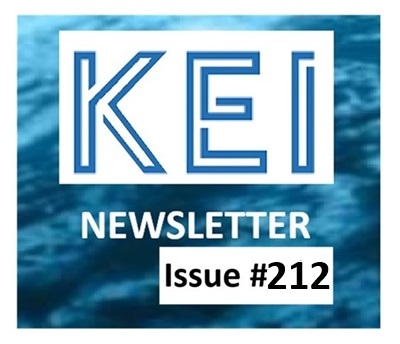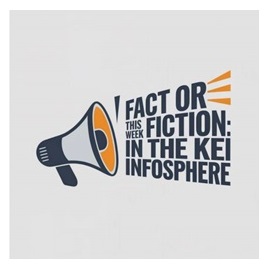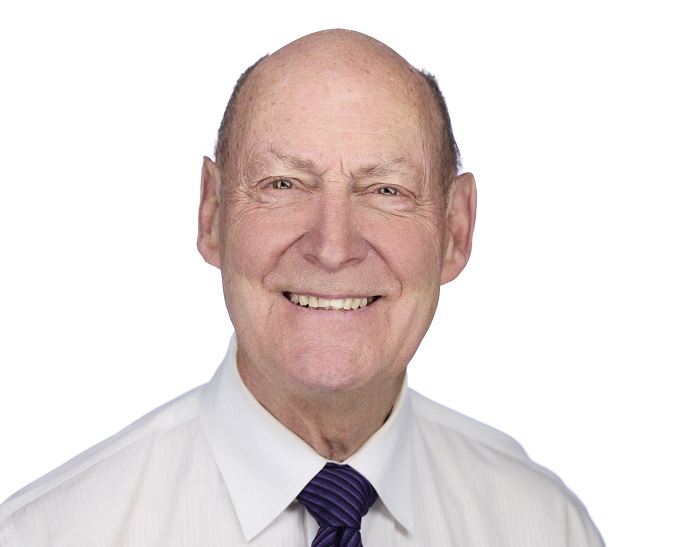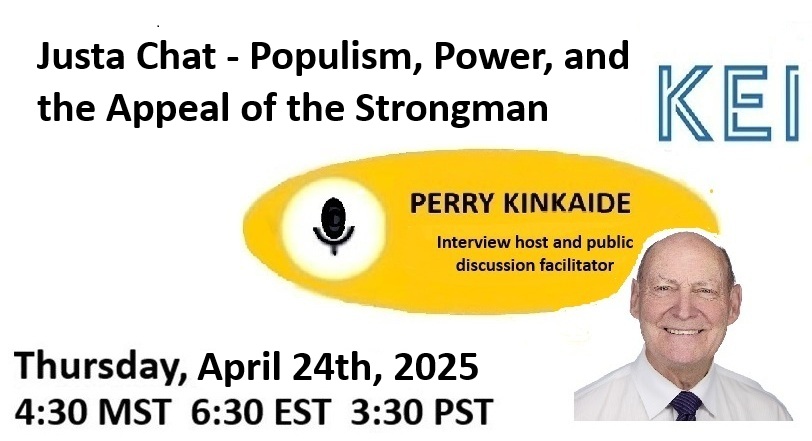|
When Autocracy Threatens Democracy |
DIRECTORY | ||
|
Contributions: What Are the Election Issues and Where Do You Stand? |
Action: Help sustain KEI's contributions |
Fact or Fiction?
Resurrection Now Possible? |
|
|
Editor - Perry Kinkaide |
Populism now champions strongman rule, demanding autocratic solutions to bloated public systems and rising dependency. Protestors resist — some defending the welfare state, others decrying the dictatorial means used to dismantle it. Yet both camps miss the paradox: the same democracy that empowered these systems now empowers their undoing. Donald Trump leads the charge, un-apologetically framing himself as the fix — not the flaw. His promise isn’t nuance but action, no matter how forceful. The question is no longer whether democracy is at risk, but whether it’s willing to risk itself to survive. Please also read the Fact or Fiction feature above - a discussion of the emerging technology of resurrection genetics. - Editor |
||
100 Days of Trump: The Dictator America Was Warned AboutIt was no veiled threat. Donald Trump told America—and the world—precisely what he intended to do: “On day one, I will be a dictator.” The venue was Iowa. The date was December 5, 2023. And now, a hundred days into his second presidency, there is little room left for disbelief.
Trump’s opening salvo was swift. He signed a series of executive orders that bypassed Congress, redirected military funding to border fortification, and instituted immediate oil drilling on federal lands. Immigration checkpoints were established with military oversight. The Environmental Protection Agency was gutted. Civil service protections were rescinded under a re-issued Schedule F order, allowing him to purge dissenting bureaucrats. These weren’t policy tweaks. They were ideological overhauls carried out with unmistakable authoritarian vigor.
Few can claim surprise. Trump campaigned not just as a populist, but as a man who equated To understand the trajectory, one might compare Trump’s methods with other figures in
Yet Trump remains uniquely American. He operates not behind a one-party state, but within the performative halls of a democratic republic. His genius—if one dares call it that—is turning public frustration into political capital and democratic tools into instruments of domination. His rallies are spectacles. His language, inflammatory yet hypnotic. And his base? Unshaken, perhaps emboldened.
The implications for the United States are stark. A nation long seen as the champion of
Still, America is not yet lost. The judiciary, though tested, has resisted. Protestors fill streets. But let no one pretend they weren’t warned. Trump said he’d be a dictator—at least for a day. A hundred days in, it’s clear he meant more. The question now is whether the republic he leads can withstand the leader it elected. No Surprises - The Dictator Wasn't KiddingThere were plenty of red flags before and during the 2024 campaign. When Trump himself mused about the possibility of suspending the Constitution, that should have been disqualifying all on its own. But so many things he’s said and done should’ve been disqualifying. But they weren't; something was simmering and he got elected. And they haven't - from Day 1 of the new Republican Presidency, the US changed.
Here’s some former Trump cabinet officials / senior advisors (all Republicans) who warned about the authoritarian tendencies of Donald Trump, tendencies that he reinforced openly declaring his intent to assume the role of a dictator from Day One.
Common thread: these insiders converge on the fear that Trump would subordinate constitutional limits to personal power—whether they label it wannabe dictator, fascist, threat to democracy, or mockery of the Constitution.
Why It Matters - Dictatorial Evidence
1. Election Administration Power Grab. A core authoritarian marker is control of the ballot box. On March 25 Trump signed an executive order federalising key election functions (e.g., voter list “harmonisation,” mandatory ID standards). Nineteen states (incl. TX & GA) sued, calling it an “unconstitutional seizure of elections.” Lawsuit filed Apr 3, 2025, NPR report; Brookings analysis.
2. Information Control & Retaliation Against Media. Dictators consolidate power by shaping the info arena. The White House has: * revoked Associated Press access after it refused to call the Gulf of Mexico the “Gulf of America” (ongoing lawsuit) * removed security clearances from 51 former intel officials * issued a “Free Speech”. EO dismantling CISA election disinformation programs—framed as anti-censorship, critics call it a chill tactic. AP v. White House case & injunction; EO fact sheet.
3. Large Scale Civil Service Purge via “DOGE”. Beyond Schedule F, Musk’s Department of Government Efficiency (DOGE) has already eliminated 200k federal jobs (25 % of the IRS)—fueling protests and degrading tax collection & scientific agencies. Linking these layoffs to the “authoritarian impulse” grounds the critique in real human fallout. Reuters/AP protest
4. Foreign Policy Shock: Ukraine & NATO. Autocrats often pivot geopolitics. Trump threatens to end U.S. military aid unless Kyiv makes concessions and has floated recognising Crimea. EU leaders are scrambling to fill the vacuum. Showing this international domino amplifies the
5. Economic Blowback & Credit Rating Warnings. The oped hints at tariffs but skips economics” is cost free. Scope warning Apr 15 2025; Moody’s report Mar 25, 2025
6. Use of 18th Century Alien Enemies Act. On Apr 7 the Supreme Court let Trump deport Venezuelan migrants under this rarely used wartime statute—a stark illustration of emergency powers stretched to modern immigration policy. AP live update.
The Cost and Consequences - Autocracy v Democracy
Populism, Power, and the Appeal of the Strongman
We are witnessing not just political polarization but institutional estrangement. Across North America and much of the world, the rise of populism signals a growing belief that traditional democratic systems no longer serve the people they were designed to represent. At the root of populism is grievance—often legitimate, sometimes inflated—but always deeply felt. Populist leaders harness this grievance with skillful storytelling: the people have been wronged, and the elites are to blame. It’s a simple, binary moral framework in a world otherwise defined by complexity and compromise. Continued below
No need to Register. Just check in https://us02web.zoom.us/j/84258596166?pw.. Continued from above. Donald Trump embodies this appeal. His promise to be “a dictator on Day One” was not a gaffe, but a calculated reassurance to those who feel the system has failed them. To many, it was not a threat to democracy, but a promise to bypass what they perceive as its dysfunction—paralysis in Congress, runaway debt, porous borders, global entanglements, and cultural upheaval.
Populism does not necessarily reject democracy—it rejects how democracy has been practiced. It craves action over deliberation, results over rhetoric. In this climate, the rule-breaker becomes the reformer, and the autocrat becomes the savior.
This is dangerous ground. The populist impulse is a warning signal, not a governing philosophy. While it identifies real breakdowns—economic disparity, technocratic overreach, cultural alienation—its remedy often invites over-correction: centralization of power, vilification of dissent, erosion of checks and balances.
The challenge before us is not simply to resist populist authoritarianism but to respond to the grievances that make it appealing. That means restoring institutional trust, improving civic education, and delivering tangible outcomes—especially for those who feel chronically overlooked.
If democracy cannot adapt to address the discontent - the grievances, that fuels populism, it may be replaced by something that does—however dangerous or short-lived that replacement may be.
Editor@KEInetwork.net |



